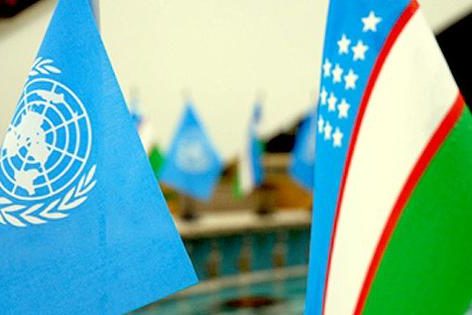
Oct 14, 2019 | Advocacy, Non-legal submissions
The ICJ has presented information to the UN Committee against Torture in preparation for the Committee’s examination of the fifth periodic report of Uzbekistan under the International Covenant on Civil and Political Rights (ICCPR).
In its submission, the ICJ addresses Uzbekistan’s legislation on extradition, its potential discrepancies with international law.
The ICJ welcomes the recent ratification of the Commonwealth of Independent States (hereafter, “CIS”) Convention on Legal Assistance and Legal Relations in Civil, Family and Criminal Matters 2002, known as the Chisinau Convention, as a positive step towards the compliance of the country’s extradition system with international standards
In it report, the ICJ formulates the following recommendations to Uzbekistan:
- Fully implement human rights and procedural safeguards and guarantees in extradition proceedings or in connection with other types of transfers, and interpret and apply such safeguards in accordance with Uzbekistan’s international human rights law obligations. In particular, Uzbekistan should take all necessary measures to fully implement the human rights guarantees featured in the Chisinau Convention into its domestic legislation.
- Implement the necessary reforms to give judicial authorities the central decision-making role in extradition proceedings, and ensure their full independence both at an institutional and personal level, in law and in practice. Extradition decisions should be taken by prosecutors only if they enjoy the same level of independence as judges, in law and in practice.
- Ensure that individuals extradited to face trial in Uzbekistan courts are awarded the full protection of the Convention.
- Take effective measures to prevent torture and other forms of ill-treatment, including by ensuring compliance with the non-refoulement principle in extradition proceedings.
- Carry out effective, independent and impartial investigations with a view to identifying persons directly and indirectly responsible for rendition operations and abduction practices, as they violate human rights and involve crimes under international law. Those responsible should be prosecuted, tried and, if convicted, sentenced to punishments commensurate with the gravity of their crimes, and to appropriate administrative sanctions to ensure non-repetition.
Uzbekistan-CAT-Advocacy-non legal submission-2019-ENG (download the submission in English)
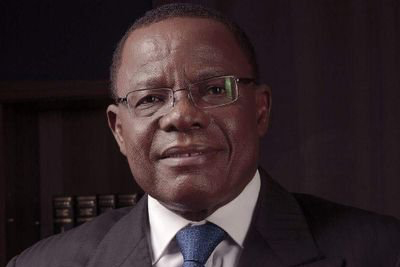
Oct 9, 2019 | News
The ICJ today welcomed the release from detention and the dropping of charges against, of Maurice Kamto and other opposition figures.
The ICJ has called on Cameroonian authorities to ensure that they and others are able to exercise their human rights and fundamental freedoms without harassment or fear of arrest and prosecution.
The ICJ also called for the authorities to embark on wider legal and institutional reforms to facilitate respect for human rights and the rule of law in order to build genuine constitutional democracy in that country.
‘’Neither the arrest, nor detention nor prosecution of people for exercising their fundamental freedoms, including political dissent and peaceful opposition nor the trial of civilians before a military court was in compliance with Cameroon’s international legal obligations,” said Arnold Tsunga, ICJ’s Africa Regional Director in reaction to news of the release.
Maurice Kamto, a leading international jurist, former ICJ Commissioner, and presidential candidate of the Cameroon Renaissance Movement (MRC), was arrested on 28 January 2019 along with dozens of other opposition figures for protesting and challenging the results of the last Presidential elections held in October 2018.
They were facing trials before military courts, in contravention of their rights to a fair trial trial, on charges of ‘’insurrection, hostility to the motherland and rebellion’’ – charges which potentially carry the death penalty.
The detainees were released last weekend after Cameroon’s President Paul Biya’s tweet on 4 October 2019, that he had ordered the discontinuance of proceedings against them. The bringing and dropping charges should be in the remit of independent prosecutorial authorities, not the President.
Nonetheless, the ICJ stressed that the release of Maurice Kamto and the other leaders provides a welcome window of opportunity for Cameroonian authorities to begin an inclusive process of revamping the legal and constitutional framework to meet international standards.
The ICJ called on the Cameroonian authorities to desist further from applying the law and legal process to persecute or otherwise harass any person for the exercise of fundamental freedoms and from administering justice through military courts, which should be reserved for prosecution military personnel for military offences only.
The ICJ stressed that the release of Maurice Kamto and other opposition figures presents a unique opportunity for Cameroonian authorities to restore public confidence in the country’s democratic institutions by including all Cameroonians in the building of a society based on the rule of law.
Contact:
Arnold Tsunga, ICJ Africa Director, C: +27716405926, or +254 746 608 859 E: arnold.tsunga(a)icj.org
Solomon Ebobrah, Senior Legal Adviser, ICJ Africa, C: +234 8034927549; E: Solomon.ebobrah(a)icj.org
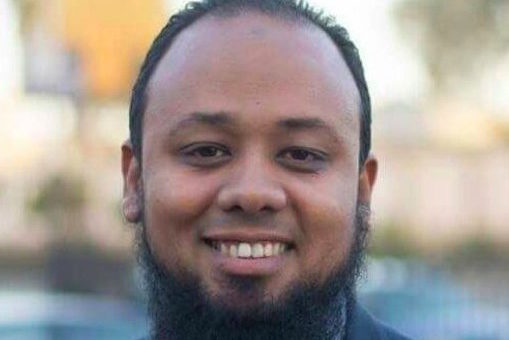
Oct 4, 2019 | News
The ICJ today called on the Egyptian authorities to immediately release all lawyers arrested for discharging their professional functions, and ensure they and other lawyers in the country are allowed to perform their work without threats or intimidation.
The Egyptian authorities have arrested more than 2400 people over the past two weeks following anti-government protests.
Many of the detainees’ lawyers have themselves been arrested, including Mahienour Al-Massry, Sahar Ali, Mohamed Salah Ajaj, Mohamed Al-Baqer (photo), Mohamed Helmy Hamdoun, Ahmed Sarhan, and Ahmed Abd El-Azim.
On 29 September, while representing prominent human rights defender Alaa Abdelafttah during questioning before the State Security Prosecution, lawyer Mohamed Al-Baqer was arrested and charged with, among other charges, “spreading false information aiming at disturbing the public and peaceful order” and “joining a terrorist organization.”
The ICJ has previously documented how lawyer Mahienour Al-Massry was arrested under similar circumstances, and called for her immediate release.
Mahienour was also charged with “spreading false information” and “joining a terrorist organization.”
“By arresting lawyers and prosecuting them on trumped-charges, the Egyptian military is dismantling the very last line of defense against its ruthless crackdown on human rights and fundamental freedoms, and silencing the very same voices that can still witness, challenge and report on its industrial-scale human rights abuses,” said Said Benarbia, ICJ MENA Director.
Under international standards reflecting core rule of law principles, lawyers must be able to discharge their professional functions without hindrance, harassment or improper interference.
They shall not suffer, or be threatened with prosecutions for any action taken in accordance with their professional duties.
The ICJ emphasized that these standards are there not only for the interests of the lawyers and those they represent or might in the future represent, but also to ensure that the rule of law remains operative for the society as a whole.
The Egyptian authorities must conform to these standards, refrain from its attacks against the legal profession, and immediately release all lawyers and other individuals arbitrarily detained.
Contact:
Said Benarbia, Director of the ICJ Middle East and North Africa Programme, t: +41-22-979-3817; e: said.benarbia(a)icj.org
Egypt-Attacks on Lawyers-News-web stories-2019-ARA (story in Arabic, PDF)
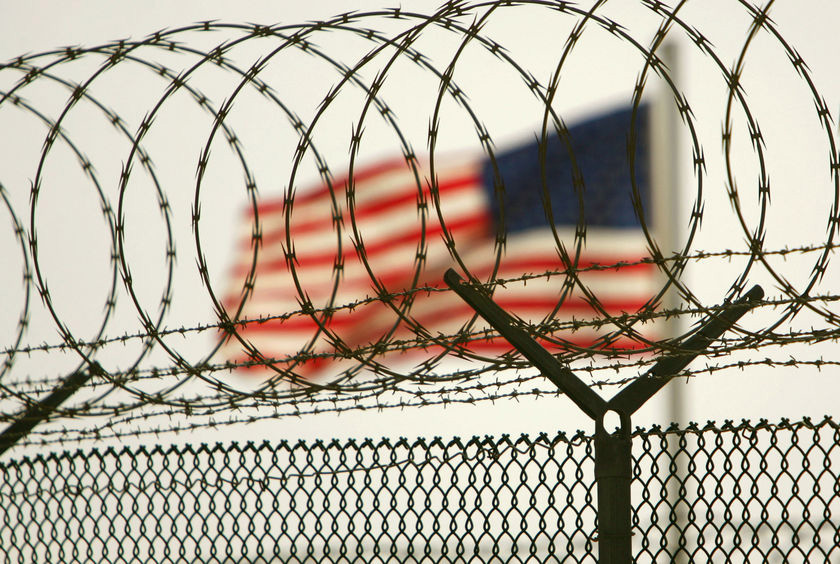
Oct 3, 2019 | Advocacy, Non-legal submissions
Today, the ICJ, jointly with the World Organisation against Torture (OMCT) and REDRESS, made a submission to the UN Universal Periodic Review (UPR) of the United States of America.
The joint submission focusses on the United States’ longstanding failure to:
(1) provide effective remedy and redress, including medical care, and
(2) guarantee fair trials to the “High Value Detainees” who are still held in Guantánamo, including Mr. Mustafa al Hawsawi.
Through a system of classifications, isolation, detention and counter-terrorism related policies the United States’ government is preventing a category of victims of torture and other ill-treatment from obtaining redress, fair trials and is securing impunity for perpetrators, contrary to recommendations in the previous UPR cycles.
For 18 years, the United States government has been violating numerous international human rights treaties it has ratified, first and foremost the Convention against Torture and Other Cruel, Inhuman or Degrading Treatment or Punishment and the International Covenant on Civil and Political Rights. Such violations deserve serious attention in the upcoming UPR review.”
USA-UPR Review-Advocacy-non-legal submissions-2019-ENG (submission in PDF)
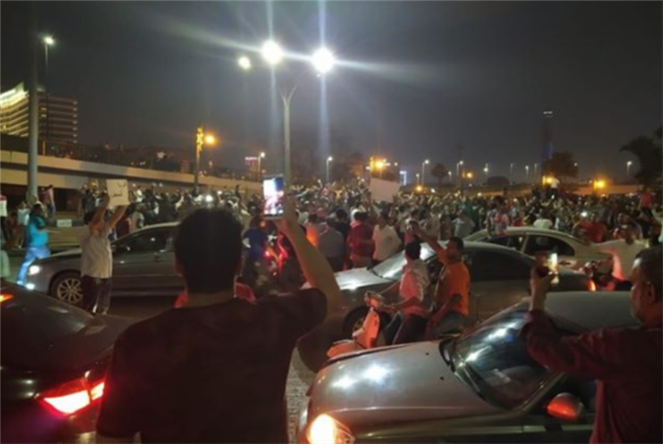
Sep 27, 2019 | News
The ICJ today called on the Egyptian authorities to respect and protect the right of Egyptians to the freedom of expression, association and assembly, and ensure that all those arbitrarily detained over the past week in the context of recent protests against President Abdel Fattah Al-Sisi’s rule are immediately and unconditionally released.
On 26 September, the Office of the Public Prosecutor issued a statement confirming the detention of more than 1000 people following their “participation in protests” and “confessions” that their participation is related to “their dissatisfaction with the economic situation in the country,” and “opposition to the regime.”
Documentation by local NGOs indicates that as many as 2000 people may have been arrested, and that most of them were charged with “belonging to a ‘terrorist group’ and “distributing false information through social media aiming at disturbing the public order and opinion.”
“Egyptians taking to the street in protest are defying six years of Sisi’s government rampant corruption, relentless repression, and systematic dismantling of the rule of law and accountability safeguards,” said Said Benarbia, ICJ MENA Director.
Benarbia added, “By filling prisons with those purportedly dissatisfied with the situation in the country, Egypt’s prosecutors and judges are acting, yet again, as a docile tool of repression rather than a shield against the military’s crackdown on human rights and fundamental freedoms.”
As the country braces for new protests today, the ICJ is deeply concerned that Egyptian laws place overly restrictive limitations on the exercise of the right to freedom of assembly and give security forces sweeping powers to disperse protests, including by using lethal force when it is not strictly necessary to protect lives.
Six years after the killing by the armed and security forces of more than 1,000 individuals in the context of the dispersal of the Rabaa’ Al-Adawyia and Al Nahda Square sit-ins, the ICJ notes that not a single person has been brought to justice for the mass killings of protestors.
“Egyptian security and armed forces have a long history of recourse to unlawful and disproportionate use of force, including firing with live ammunition into crowds,” said Benarbia.
“They must comply with Egypt’s obligations under international law and guarantee the rights of protesters to life, to be free from torture and other ill-treatment, and to freedom of assembly, association and expression,” added Benarbia.
Contact:
Said Benarbia, Director of the ICJ Middle East and North Africa Programme, t: +41-22-979-3817; e: said.benarbia(a)icj.org
Download:
Egypt-free detainees-News-Press releases-2019-ARA (press release in Arabic, PDF)









